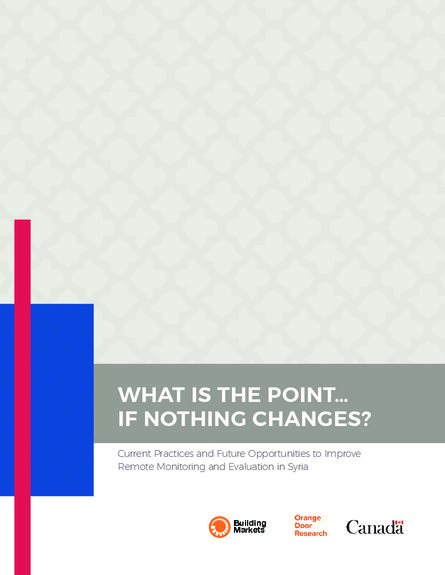
Before the onset of Syrian civil war and humanitarian crisis, there were few local civil society organizations (CSOs) in the country, and almost no international NGOs (INGOs). When the crisis began to unfold, INGOs did not have pre-existing relationships with local actors or any infrastructure for delivering humanitarian aid.
The Syrian crisis has been marked by a fluctuating political environment with various groups competing for rule on the ground, creating a high-risk operating environment. As such, aid delivery has become increasingly dependent on emerging Syrian organizations, who can more easily access besieged and restricted areas. International organizations, because they receive the bulk of the funding for the humanitarian response, are partnering or sub-contracting work to these local groups.
However, given lack of access, communication, and information, INGOs are concerned their funds may fall into the wrong hands, and have relied on monitoring mechanisms to confirm that aid is delivered. Monitoring, however, does not show INGOs the impact or efficiency of aid. Those studies, known as Evaluation, have largely been ignored in this context.
Monitoring initiatives often become the responsibility of local Syrian organizations that are already stretched to their limits in time, capacity, and budgeting. It is not uncommon for Syrian CSOs to be managing funds from eight or more donors, and each donor has different monitoring requirements. In addition to delivering life-saving assistance, these organizations have to provide monitoring reports on a weekly, monthly, and/or quarterly basis. As one CSO put it, “Donors are all over the place…it gets tiring. They all want different things.”
